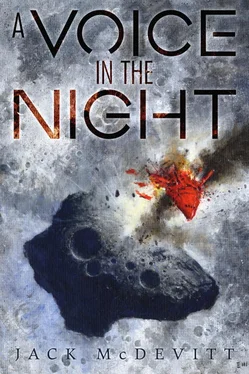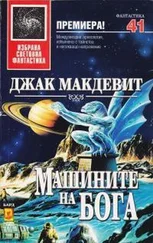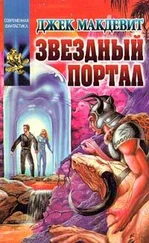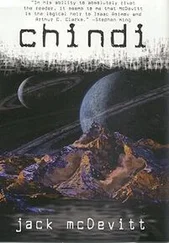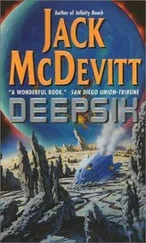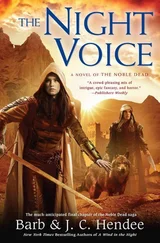“Where are they now?”
“The manuscripts? I gave them to Chris. He was an English teacher. I knew he’d find a use for them. He used to show them to his students.”
“You gave them away?”
“I wasn’t giving them away, Inspector. I knew they might be valuable. But Chris was a member of the family.”
“And he showed them to his students?”
“Oh, yes. He has all kinds of stories about their reactions.”
I was sure he did. “But you never read them?”
“Have you ever seen Conan’s handwriting?”
When I got to McBride’s place, he was waiting. “I expected you earlier,” he said.
“Emma called you.”
“Yes.”
We stood facing each other. “You didn’t write the Holmes stories, did you?”
“Doyle wrote them.”
“Why didn’t he publish them?”
He retreated inside and left the door open for me. “He considered them beneath him. Stevenson quotes him as saying he didn’t want to have his name associated with cheapjack thrillers. That was the way he thought of them.”
“But he created Holmes and Watson.”
McBride nodded. “As far as he was concerned, they were entertainments for him. What we would call guilty pleasures. Something he did in his spare time. God knows where he found spare time. Stevenson suggested he publish them under a pseudonym, but Doyle believed the truth would leak out. It always does, you know.”
“Yes, I suppose it does.” Finally, we sat. “That was what was in the two letters you removed from the library.”
“Stevenson had read two of the stories. ‘A Scandal in Bohemia.’ And ‘A Case of Identity.’ He pleaded with Doyle to publish. But Doyle’s career as a historical novelist was just taking off. And that was the way he wanted to be remembered.”
“The other letter? The one to Payn?”
“Payn had a chance to publish A Study in Scarlet . In 1886, I believe. He was editor of the Cornhill magazine then.” McBride shook his head slowly at the blindness of the world. “He rejected it. Rejected A Study in Scarlet . Imagine. So Stevenson wrote to him. He mentioned Holmes and Watson in his letter and told Payn he’d missed a golden opportunity. He suggested he reconsider his decision.”
“Did Payn ever respond?”
“Not that I know of.”
“Where did you get the false driver’s license? Michael Y. Naismith?”
“I’m sure you know of places where that can be done. When you spend years with adolescents, finding an establishment that sells ID’s is not really difficult.”
“Of course.” Suddenly he had another glass of bourbon in his hand. I didn’t know where it had come from. “And Cable knew.”
“Yes.” His eyes grew dark. “He’d seen the letters that very day. And he couldn’t wait to come over here and confront me.”
“Didn’t you think, before you stole the stories, that you’d be found out eventually?”
“The stories were mine,” he said. “I found them.”
“Why did you not move Holmes into modern times?”
“It would have lost the atmosphere.” He finished his drink and stared at the glass. “No. I thought it best to leave Mr. Holmes where he was.”
“So Doyle’s characters became world famous, and you with them.”
“Yes. That is what happened. Although they were my characters, not Doyle’s. He had no faith in them. I was the one who recognized them for what they were. The world would not have Holmes and Watson, had I not intervened.”
“And you’d expected to continue the series yourself.”
“Yes. I thought it would be easy to imitate Doyle’s style. I’d established my name as a major writer. I thought the rest would come easily enough.”
“But it hasn’t.”
He managed a smile. “I’ve had some difficulty. But given time, I would be all right.”
“So, last Friday evening, Cable walked in and challenged you. What happened? Did you decide you couldn’t trust a blackmailer?”
“Oh, no. He wasn’t here to blackmail me, Inspector. He was hellbound on exposing me.”
“So you killed him.”
“I never intended to. I really didn’t. Even now, I can hardly believe it happened. But he was enjoying himself. He was laughing at me. I offered money. He told me that he wasn’t for sale. That I would get exactly what was coming to me. That I deserved to be held up to public scorn. And he walked out.”
“You did it in the driveway.”
“I didn’t mean to. I really didn’t. But I was outraged.”
“Then you hosed it down.”
“If you say so, Inspector.”
“You did it with your driver, didn’t you?”
“What makes you think so?”
“You’re an accomplished golfer, and the driver’s a perfect fit for the damage. “
McBride stared at him. “No,” he said, “that’s crazy.”
“Then you put him in the trunk and drove him over to the shopping center and, when you got a chance, you dumped the body in the woods.”
He looked away. Into the dining room, where it was dark. “You took his keys, went to his house, and stole his computer. In case there was anything on it about the Stevenson letters. And you made it look like a burglary.”
He remained silent.
“I thought signing a book for him, after the fact, was a nice touch. You knew we’d tie you into it, that we’d come here, so you had your story ready.”
“Inspector, you’ve no proof of any of this. And you can do nothing more than ruin my reputation. I suspect you can’t be bribed, but I would be extremely grateful if you looked the other way. You owe me that much. And you owe it to the world. I’ve made Holmes and Watson immortal.”
“It’s over, McBride. I have some people outside. And a warrant. I can’t bring myself to believe you would have destroyed the Doyle manuscripts. They’re here somewhere.”
“Yes, they are,” he said. “But that will only show that I allowed my name to be used on someone else’s work. That’s serious enough, but it isn’t murder.”
“You’re right,” I said. “But I’ll be surprised if we don’t also find the Stevenson letters. Not that it would matter at this point. We can probably match your handwriting on the register at the library. Combined with everything else, I think it will be more than enough to persuade a jury.”
On the way downtown, he asked whether I’d read the Holmes stories. I told him I had.
“I wish he’d listened to Stevenson,” he said. “Can you imagine what might have been had he gone on to create a series with Holmes and Watson? What a pity.” Tears appeared in his eyes. “What a loss.”
COMBINATIONS

“And what,” asked Charlie Breslow, “did William Jennings Bryan say to you?” He grinned and shook the ice cubes in his almost-empty glass.
Charlie never tried to conceal his amusement with my attempts to create computer simulations of historical figures. “You should never have left Sears and Roebuck,” he liked to say. “If you’d stayed on, you’d have been a division head by now.”
I signaled the waiter. “He told me,” I said, “that he could have stopped the world war if anyone had taken his cooling-off mechanism seriously. And I suspect he was right.”
“It hardly matters at this point, Harold.”
“I know. But he still feels bitter about Woodrow Wilson. And it doesn’t make him happy that the only thing anybody knows about him now is that he got involved in what he calls that idiot monkey trial.”
Читать дальше
